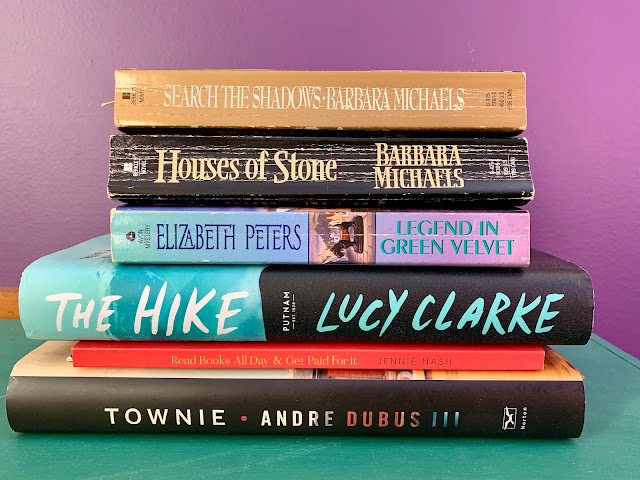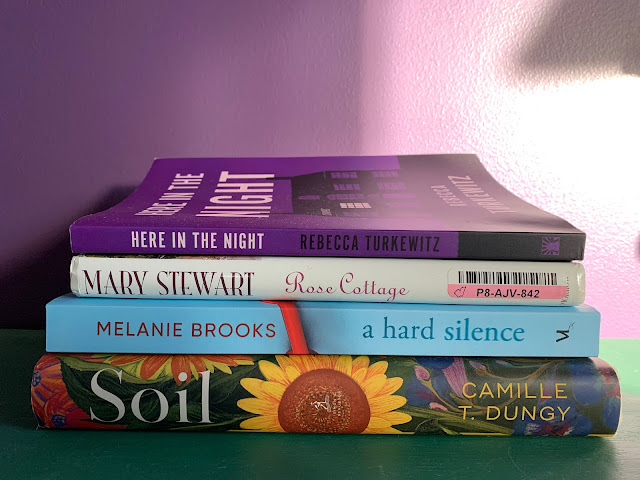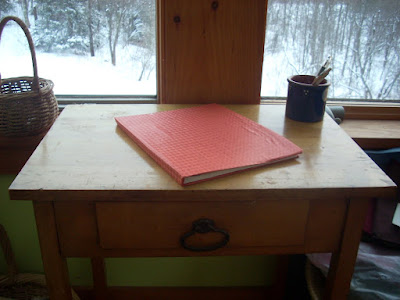First, the announcement:
After 16+ years of posting here, I've decided to retire this blog. Part of me wants to write a long post about what I've learned and what it's meant to me and why I've decided to move on, but instead I think I'll just make a clean break of it and leave it at thank you for coming here for as many of those 16 years as you have, to read what I have to say. You can visit me at www.andrealani.com, where I'll post regular updates about publication news and upcoming events. You can also subscribe to my newsletter, which goes out once a month and includes a short essay and news, and which from now on will include a regular "now reading" section to take the place of these Book Stack posts. Now, without further ado, here's December's reading list.
Now, the book stack:
A monthly post about what I've been reading.
January 2023
February 2023
March 2023
Fiction
December's fiction reads had were vintage and seasonally appropriate mysteries. I was in the mood for comforting, classical mysteries and found Monk's Hood, a Brother Cadfael mystery by Ellis Peters, and Strong Poison, the first Harriet Vane mystery by Dorothy L. Sayers during a recent used bookstore visit. Coincidentally they both take place during the Christmas season, although neither has a strong holiday theme to them. They both delivered in the classic, entertaining whodunnit and cozy escapism departments. At another used bookstore, I picked up In the Bleak Midwinter by Julia Spencer Fleming. This one was on a seasonal display and therefore a more seasonally intentional choice. I don't always love police procedurals, but I enjoyed this one and will probably be on the lookout for more in the series.
Nonfiction
I picked up a copy of Elizabeth Tova Bailey's The Sound of a Wild Snail Eating for a friend who was going to be going through a medical treatment that would leave her convalescing for a long while. I thought she would find comfort in Bailey's quiet contemplation of a pet snail that found its way accidentally into her home and heart while she was undergoing a long period of illness caused by a virus (similar to some people's experiences of long covid). I'd read the book some years ago and decided to read it again before I passed it on to my friend. I love all the snail literature and lore she includes and the surprising companionship the minute creature brings to Bailey.
I also read Susan Hand Shetterly's latest collection of nature essays, Notes on the Landscape of Home. It's a lovely little book--I always enjoy Shetterly's quiet and wise way of contemplating the world, our place in it, and the changes that it's undergoing due to climate change, development, etc.

Finally, I finished these two monsters: A Nature Poem for Every Day of the Year and Nature Writing for Every Day of the Year, edited by Jane MacMorland Hunter. I read the day's entry from each book almost every morning before I got started on the day. I'd started reading them in January of 2022, but gave up after missing too many days and not being able to catch up. This time, if I missed a day, I sometimes read it the next day and sometimes let it go. So there are a few entries from both books I didn't read--including most of July--but in the interest of avoiding an all-or-nothing attitude, I'm calling them read (and may catch up on July next year). Because they come from a British editor and publisher, they lean heavily toward British writers, with a focus on the 19th and 20th centuries, although there are some that go back as far as Pliny the Elder and a few contemporary writers thrown in. Like most collections of nature writing, both books lean heavily white male, although the ratio of women writers is higher than in many such collections. I also appreciate that the Nature Writing book includes a fair amount of fiction, some of it from surprising places (what you might not, on first glance, consider nature writing). So overall I enjoyed both books, was introduced to some new writers and reminded of some old favorites, and I enjoyed having the ritual of reading a poem and a short excerpt each morning. I need to find something to replace them with. (I also have a book from the series called a Nature Poem for Every Night of the Year, but I haven't yet gotten into the habit of reading from it before I go to bed.)
Scrolling back through all of my Book Stack posts, I estimate that I read 83 books during 2023. I didn't make much of a dent in the book stack, though, since many (most) were new acquisitions. (I'm going to keep working at whittling down that stack--which is now housed on book shelves and therefore less ominous looking--in 2024.) I was going to say which were my favorites, but looking back over the stacks, I see so many that I loved for different reasons, or, even if I didn't love them, I appreciated something about them. I suppose the Demon Copperhead-David Copperfield pairing was pretty close to the top of the list.
























